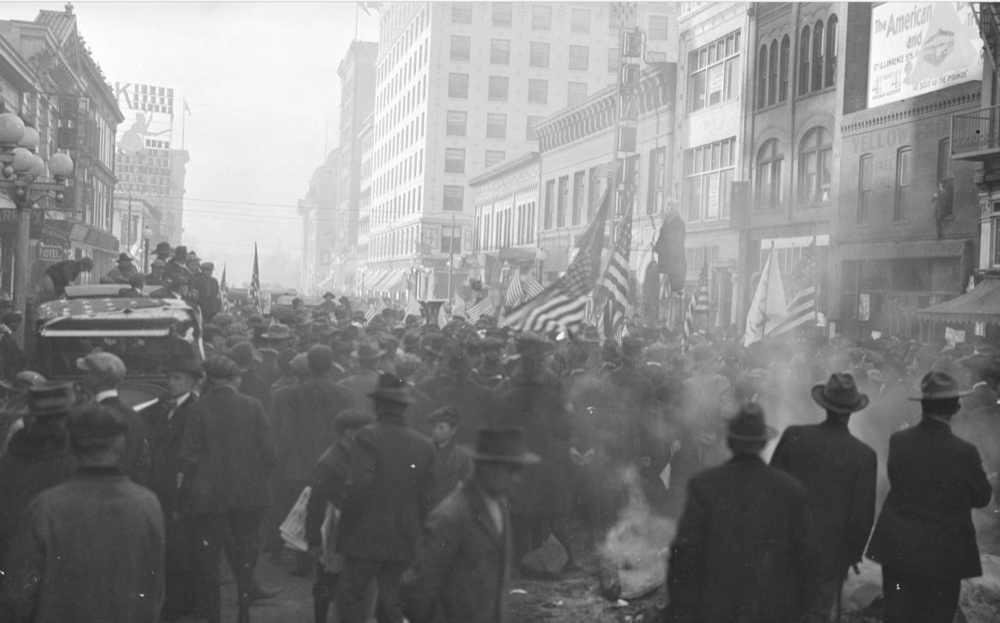Good morning. Today's news clips include some national reporting on teen suicide in Colorado, interesting reads on the environment and electricity, and also a really awesome library.

First, two requests: Come to our Election Night happy hour (including some fun improv games, and beer, and conversation), and please tell your friends to sign up for our newsletter.
North Denver's disruption continues.
Adrian Garcia reports today on the businesses that may be forced to move by the proposed rebuilding of the National Western Complex. This means not just a net loss of jobs in the 106-acre area, but also the potential loss of those small businesses altogether. The companies will, however, receive money for the land and to support their relocation. (Denverite)
Newsweek reports on a cluster of teen suicides in El Paso County.
"It doesn’t happen once every four years. It happens four times in a month, sometimes," one student says. The point of the article is that suicide is contagious, one death tempting another, and social media may be widening its spread. One expert finds that "clusters" may make up 1 to 5 percent of teen suicides. (Newsweek)
In response, authorities are trying to make students feel safer in reporting suicidal ideations. Also worth reading: School administrators' explanation of why they granted an interview for the story. (KOAA)
Cows produce methane.
The domestic cattle industry puts out about two thirds as much of the climate-changing gas as what escapes from oil and gas drilling operations, according to USA Today. That means rural Colorado, rich in both cows and fossil fuels, is something of a methane hot spot. Potential solutions on the bovine side include better diets, methane-trapping backpacks and manure digesters. (USA Today)
Denver's unstoppable little library gets a third location, starting tonight.
The Rocky Mountain Land Library, a nonprofit project, is focused on the intersection of humans and land. It now has some 32,000 volumes "stashed in a trio of locales along the course of the South Platte." Its newest location is 2612 Champa Street, the Puritan Pie Company building. The opening party runs 5 p.m. to 9 p.m. tonight. Tickets here. (Westword)
Was James Holmes' death penalty trial worth the pain?
District Attorney George Brauchler failed in his effort to have the Aurora theater shooter executed, instead getting a verdict of life without parole. The execution-seeking process likely made the trial longer and more costly, and Brauchler's initial reaction was "pure regret" that he hadn't achieved his goal. But he says that the victims and families told him it was right to try, because the prosecution at least surfaced all the details of the horrific crime. (Westword)
Police chief: Boulder officers were trapped in stairwell with machete-wielding man.
This is in reference to the fatal police shooting of Brandon Simmons, 28, at CU-Boulder's campus on Oct. 5. Boulder police chief Greg Testa said that his officers were "trying to back down the stairs as they're yelling," while the suspect "cussed or made statements" that indicated he wouldn't comply. The investigation continues. (Daily Camera)
It's still cheap to park here.
Contrary to popular complaints, there's a lot of parking in downtown, and it's not that expensive. As Megan Arellano reports, there's an argument that parking should be a pain in order to encourage transit use. One counterpoint is that higher parking costs disproportionately affect people with less money. (Denverite)
Here's what $13 million can do for a school.
See some photos of a "state-of-the-art" technology center for the private Graland Country Day School in Denver. (DBJ)
Merle Haggard's legacy now includes branded weed.
Don't worry, he was totally into it. He had worked with Colorado Weed Company to develop fancy weed strains prior to his death this year. No word on when the product hits the market. (Westword)
Boulder pledged to go 100 percent renewable, and Denver may follow.
I must have missed this: Boulder pledged in August to join Aspen (and practically the entire nation of Iceland) in establishing a "100 percent renewable" energy supply for itself. Denver leaders also said they would examine the possibility, and Los Angeles wants to do the same. (American City and County)
To be clear, this doesn't mean all these cities will be drawing all their power directly from wind turbines and whatnot. Rather, cities like Aspen buy renewable-energy credits from producers all over the country. So, while Boulder might still consume X megawatt hours of fossil-fuel power, it may also subsidize the creation of X megawatt hours of solar power elsewhere. The renewable producer (in Wyoming, say) then gets to sell the actual electricity to someone else while collecting the bonus money from Boulder.
You still get the environmental impacts of the fossil fuel, but at least you helped grow a renewable energy source elsewhere? If you can explain this better, please email me.
Today's writing soundtrack:
Frank Ocean, then Merle Haggard.
Bonus:
My hunt for giant purple faces in Highland. (Denverite)












